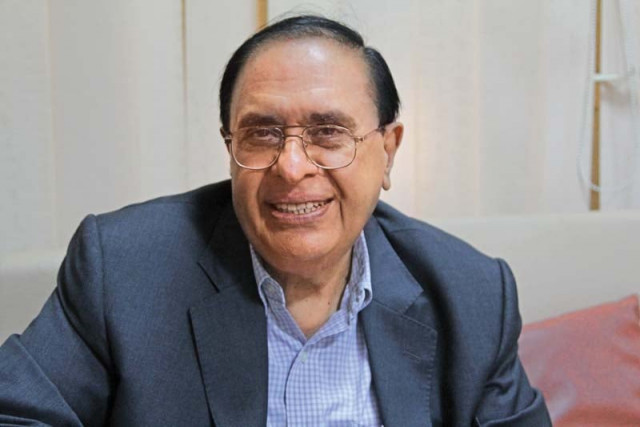Dr Rahman chose chemistry to challenge himself
Former HEC chairperson remembers life as a student

Dr Attaur Rahman
"I received the first position in all my O' Levels subjects but had average marks in only one — chemistry," recalled Dr Rahman, as he sat down to remember his life as a student with The Express Tribune. "The grades made me curious about chemistry."
A scientist who went to school at 10
Dr Rahman was born in 1942 in New Delhi. Only five years later when the Partition took place, his family moved to Okara in the Punjab. His father, who was a lawyer by profession, set up a factory in the newly established country.
In Okara, Rahman received private tuitions from Syed Tajammul Hussain, who had also migrated from Hyderabad Deccan and used to live near their house. "Hussain Sahab was my inspiration to learn and to do something in education," he said.
In 1952, the family moved to Karachi's Hill Park area to a house where he still lives with his family. It was when he was 10 years old that Dr Rahman started class two at Karachi Grammar School (KGS) — his first formal education.
"I was an outstanding student and received two double promotions in KGS — one from class three to five and another from class six to eight," he said, explaining how he managed to sit for his O' Levels exams by the year 1958.
After Cambridge, Rahman went on to join the University of Karachi (KU) from where he completed his Bachelor's and Master's in organic chemistry. His father wanted him to join the family business as he was the only child but Rahman was not interested in making money. He wanted to explore new dimensions and research in the field of chemistry.
"I joined KU as a teacher in September 1964 and I was paid a salary of Rs375 per month," he said.
His mentor Hussain's words rang true when he told Rahman that one should have a thirst for one's subject of interest. Rahman went on to complete his PhD in organic chemistry from King's College at Cambridge University.
Awards to cherish
He is a proud recipient of four civil awards — a Tamgha-e-Imtiaz from General Ziaul Haq, Sitara-e-Imtiaz from Benazir Bhutto, Hilal-e-Imtiaz from Prime Minister Nawaz Sharif and Nishan-e-Imtiaz from General Pervez Musharraf.
But for Dr Rahman, the best award he has received was to be able to sign the 350-year-old Charter Book of the Royal Society that also contains the signatures of Isaac Newton and Charles Darwin. "In 2006, I was elected a Fellow of the Royal Society and had signed the original book, which is in London," he said, proudly showing a copy of the book in the library of the Hussain Ebrahim Jamal Research Institute of Chemistry.
Down memory lane
The fondest memories for Rahman come from his visits to his grandfather's house in Mussoorie, India. "My grandfather's house was on a hill and I remember clouds coming into the room from the windows," he recalled.
As a student at KU, Rahman was never a bookworm. "I was an active participant in dramas, music programmes and what not," he pointed out. Working as the patron-in-chief of KU's International Centre of Chemical and Biological Sciences now, Rahman compared how the varsity has changed since his time. There is a lot of development many research centres have come up that were not there when he entered as a student in 1960.
"The gymnasium building which is still here was newly built at that time and I loved playing table tennis there," he said, admitting that he still plays table tennis at his research centre.
Published in The Express Tribune, October 3rd, 2015.



















COMMENTS
Comments are moderated and generally will be posted if they are on-topic and not abusive.
For more information, please see our Comments FAQ